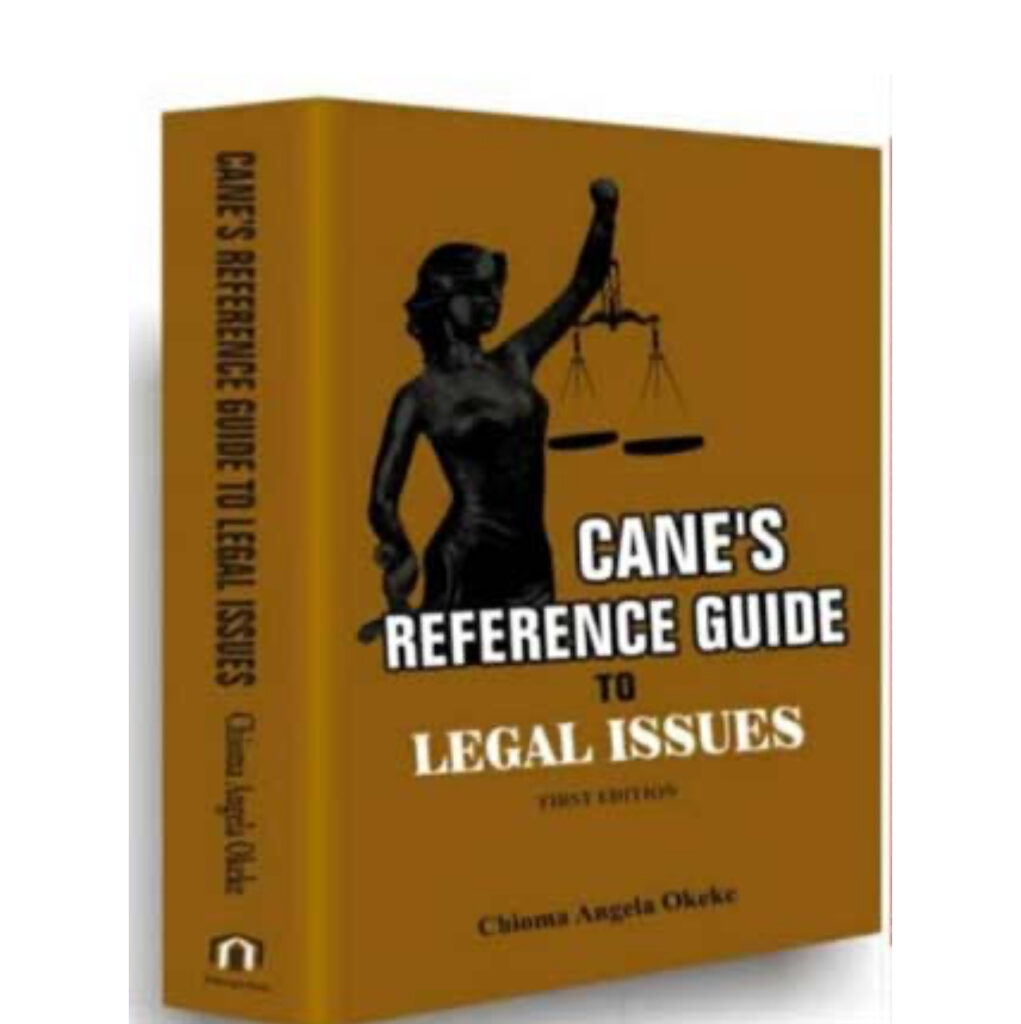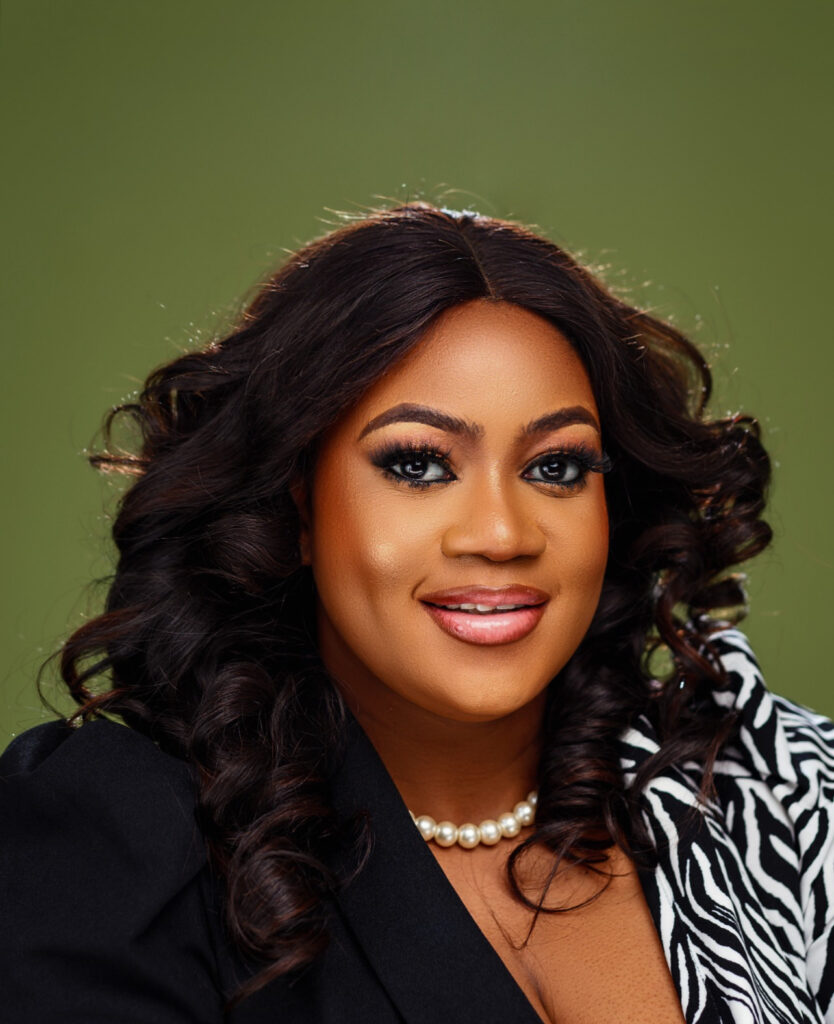
“RECOGNISED COURT ROOM APPEARANCE 1”
LEGAL TIP 88.
The Writ of Summons in a suit and other originating processes were signed in the name of a law firm. This means that the suit filed at the trial court was a nullity as the Statement of Claim was signed by an unknown person for the legal practitioner. The argument was whether or not a law firm can sign a court process. In NWEKE V. OKAFOR (2007) 10 NWLR (PT. 1043) 521, and FIRST BANK OF NIGERIA PLC V. MAIWADA (2013) 5 NWLR (PT. 1348) 444, the Supreme Court of Nigeria while interpreting sections 2(1) and 24 of the Legal Practitioner Act, held that a law firm is not a legal practitioner and cannot therefore practice as such by filing processes in Nigerian Courts.
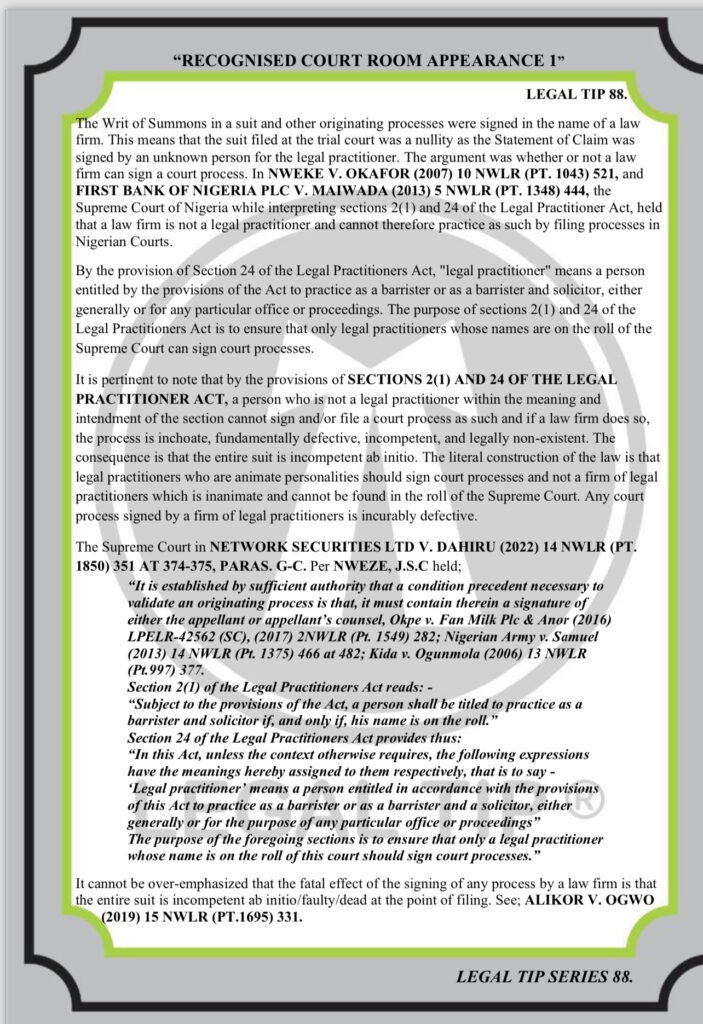
By the provision of Section 24 of the Legal Practitioners Act, “legal practitioner” means a person entitled by the provisions of the Act to practice as a barrister or as a barrister and solicitor, either generally or for any particular office or proceedings. The purpose of sections 2(1) and 24 of the Legal Practitioners Act is to ensure that only legal practitioners whose names are on the roll of the Supreme Court can sign court processes.
It is pertinent to note that by the provisions of SECTIONS 2(1) AND 24 OF THE LEGAL PRACTITIONER ACT, a person who is not a legal practitioner within the meaning and intendment of the section cannot sign and/or file a court process as such and if a law firm does so, the process is inchoate, fundamentally defective, incompetent, and legally non-existent. The consequence is that the entire suit is incompetent ab initio. The literal construction of the law is that legal practitioners who are animate personalities should sign court processes and not a firm of legal practitioners which is inanimate and cannot be found in the roll of the Supreme Court. Any court process signed by a firm of legal practitioners is incurably defective.
The Supreme Court in NETWORK SECURITIES LTD V. DAHIRU (2022) 14 NWLR (PT. 1850) 351 AT 374-375, PARAS. G-C. Per NWEZE, J.S.C held;
“It is established by sufficient authority that a condition precedent necessary to validate an originating process is that, it must contain therein a signature of either the appellant or appellant’s counsel, Okpe v. Fan Milk Plc & Anor (2016) LPELR-42562 (SC), (2017) 2NWLR (Pt. 1549) 282; Nigerian Army v. Samuel (2013) 14 NWLR (Pt. 1375) 466 at 482; Kida v. Ogunmola (2006) 13 NWLR (Pt.997) 377.
Section 2(1) of the Legal Practitioners Act reads: –
“Subject to the provisions of the Act, a person shall be titled to practice as a barrister and solicitor if, and only if, his name is on the roll.”
Section 24 of the Legal Practitioners Act provides thus:
“In this Act, unless the context otherwise requires, the following expressions have the meanings hereby assigned to them respectively, that is to say –
‘Legal practitioner’ means a person entitled in accordance with the provisions of this Act to practice as a barrister or as a barrister and a solicitor, either generally or for the purpose of any particular office or proceedings”
The purpose of the foregoing sections is to ensure that only a legal practitioner whose name is on the roll of this court should sign court processes.”
It cannot be over-emphasized that the fatal effect of the signing of any process by a law firm is that the entire suit is incompetent ab initio/faulty/dead at the point of filing. See; ALIKOR V. OGWO
(2019) 15 NWLR (PT.1695) 331.
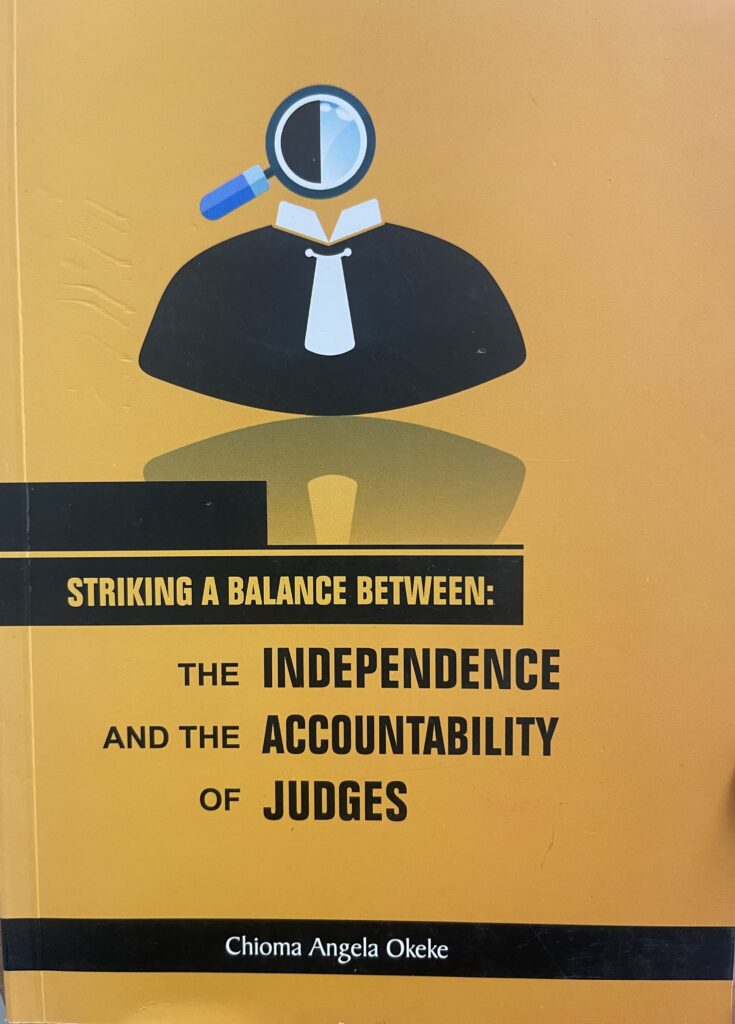
About the Author
Chinelo Audrey Ofoegbunam is a dynamic, ingenious, noble, and vibrant advocate. An innovative business advanced expert who has undertaken relevant training in law and advocacy, business administration, governance, arbitration, leadership, and a host of others.
She focuses on the effective implementation of evidenced result-oriented paths, cases, fulfilled clients, and exceeds expectations. She is a generous, dedicated, and compassionate person, and indeed an advocate for justice and peace.
She has received several awards, medals of excellence, and honorary Awards for humanitarian acts. She was the best graduating student from the Chartered Institute of Arbitration (United Kingdom) in 2019, which caused her direct appointment in the Federal High Court-Alternative Dispute Resolution Centre.
Audrey is a member of several organizations to wit:
The St Vincent de Paul Society, Executive member of the Women and Girl-Child Capabilities Enhancement and Empowerment Organization (WGCCEEO), Devatop Center for Africa Development (DCAD), Nigerian Red Cross Society (NRCS), French Club Le Clezio; Young African Leadership Institute; The Nigerian Bar Association where she currently serves in an executive position as the Treasurer of the NBA Abuja Branch; The African Bar Association, Commonwealth Lawyers Association, and International Bar Association; The Nigerian Institute of Chartered Arbitrators, Chartered Institute of Arbitrators (UK), Federacion Internacional de Abogadas(FIDA); Institute of Mediation and Conciliation; Chartered Institute of Taxation, Institute of Chartered Secretaries and Administrators in Nigeria; Institute of ADR Registrars; Registrar, The Colloquium; and of the Rotary International.
Audrey is a Young African Leadership Institute Fellow, a Paul Harris Fellow, a Benefactor, an ADR Neutral, Federal High Court-Alternative Dispute Resolution Centre, and an Author of the weekly Legal Tip Series.
She speaks English, Igbo, and French; And loves playing badminton, listening to music, researching and writing, traveling, and swimming.
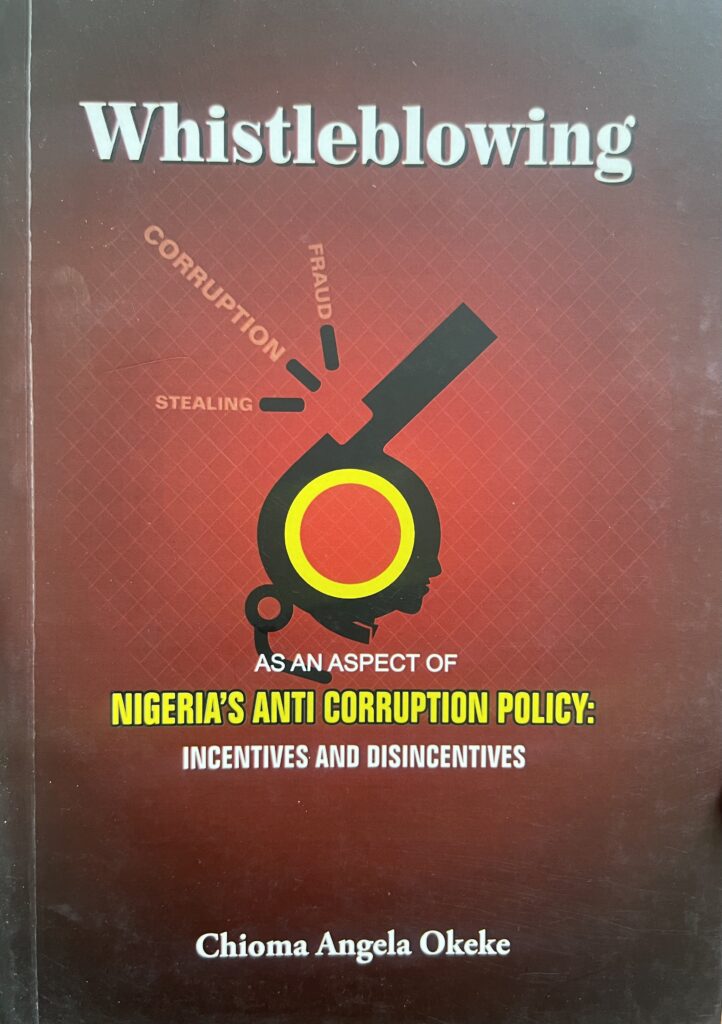
*LEGAL TIP SERIES 88.*